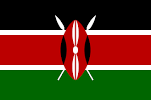Chemycal has been acquired by 3E
Learn MoreChemycal has been acquired by 3E
Learn MoreDiscover how Chemycal PRO helps you boosting your regulatory monitoring:

Plastic pollution is one of the most serious threats to the planet’s health. Single-use plastics are polluting the majority of ecosystems from rainforests to the world’s deepest ocean trench. When consumed by fish and livestock, plastic waste ends up in our food chain.
By 2050, the UN estimates that there will be more plastic than fish in the ocean, unless governments and the private sector promote more resource-efficient design, production, use and sound management of plastics throughout their life cycle.
Kenya is taking a bold step in this direction. This year, the country will mark World Environment Day by banning single-use plastic in protected natural areas.
Following a presidential directive on last year’s World Environment Day, the ban will come into effect on 5 June 2020 in National Parks, beaches, forests and conservation areas, which means visitors will no longer be able to carry plastic water bottles, cups, disposable plates, cutlery, or straws into protected areas. The move follows Kenya’s ground-breaking step of a nationwide ban on single-use plastic bags in 2017.
“By banning single-use plastics in its parks and protected areas, Kenya joins the rest of the world in setting the agenda for the sustainable management of waste in conformity with this year’s World Environment Day theme,” said Juliette Biao, Africa region director at UNEP. “Only 3 years after Kenya introduced one of the world’s most efficient laws on single-use plastic bags, this latest measure provides the necessary momentum as nothing exemplifies nature better than our wildlife and biodiversity.”
CONTINUE READING ON www.unenvironment.org
2013 © MyChemicalMonitoring. ALL Rights Reserved. About Us | Terms and Conditions